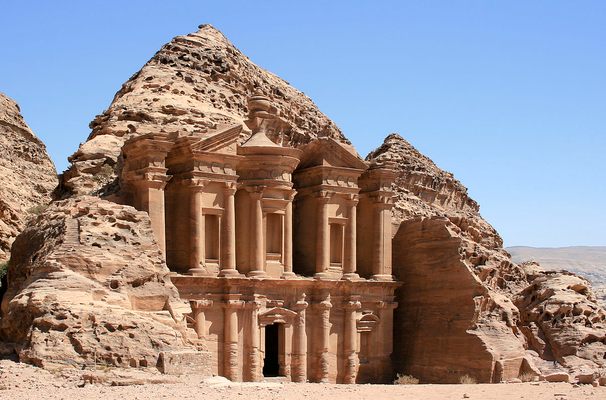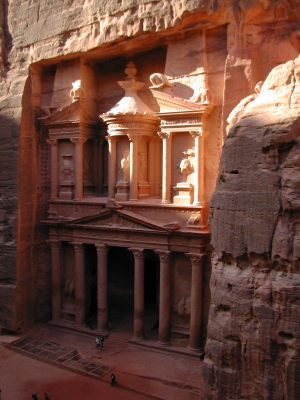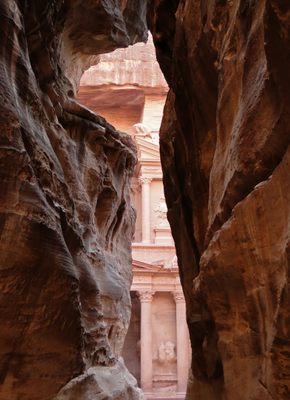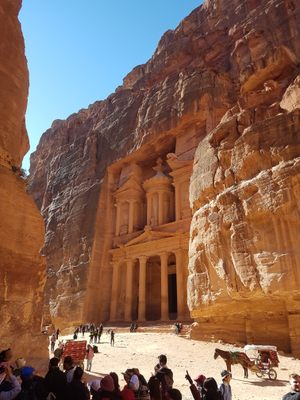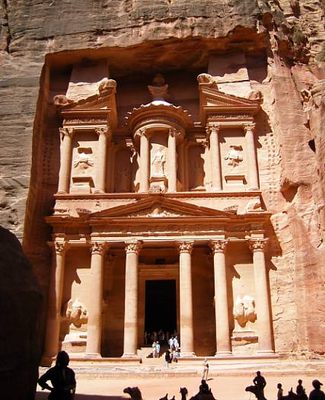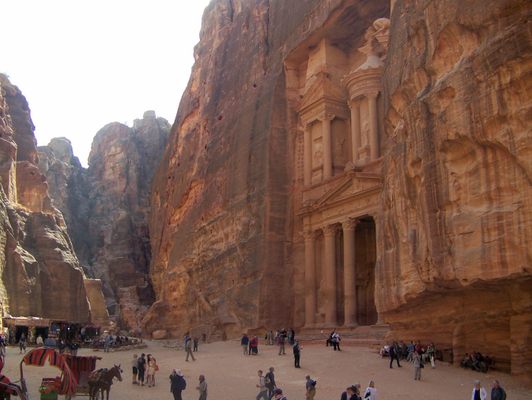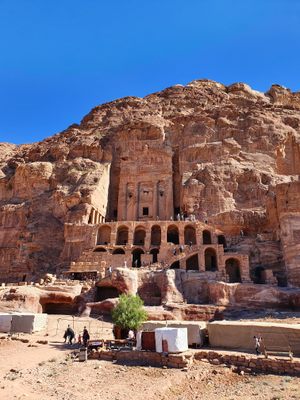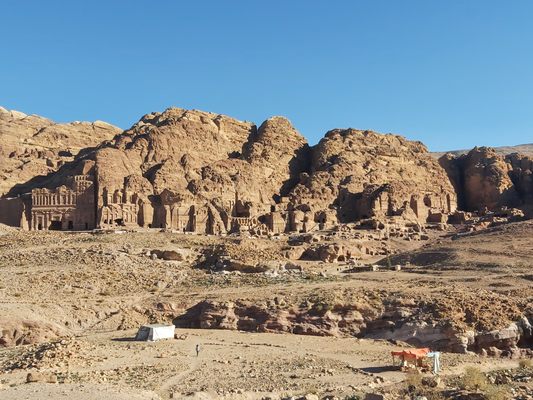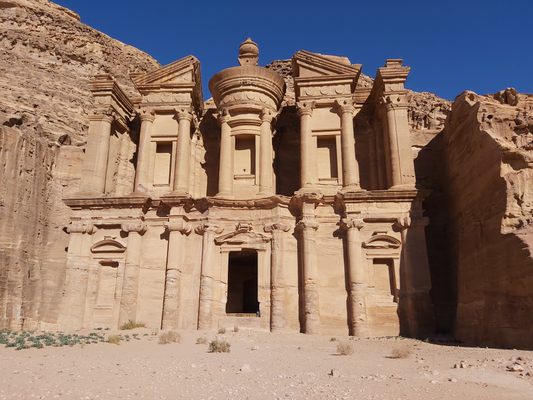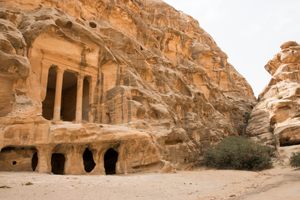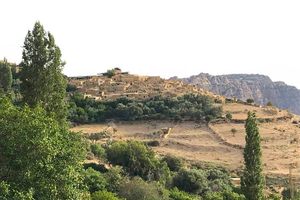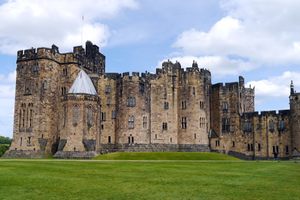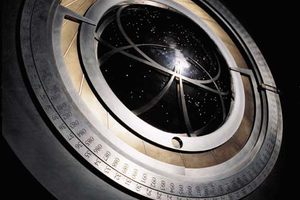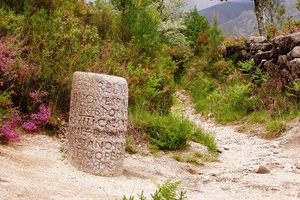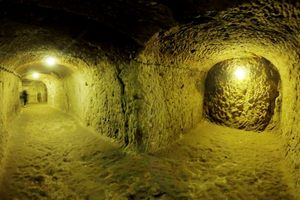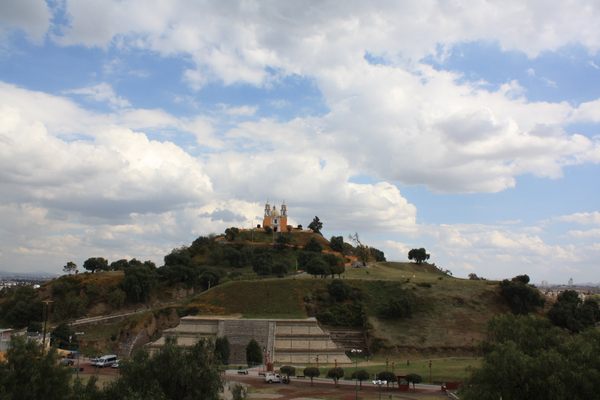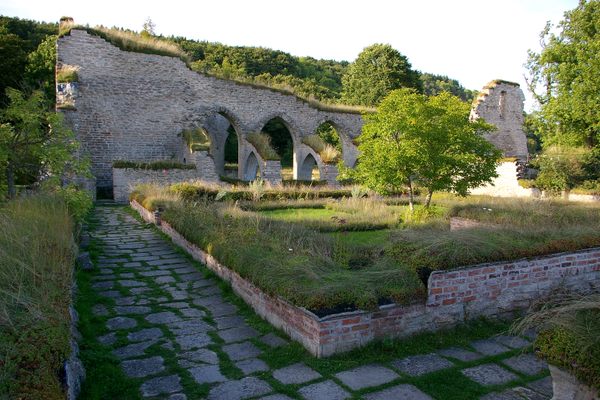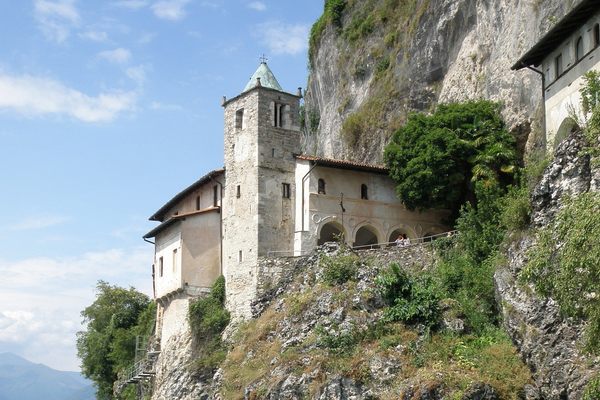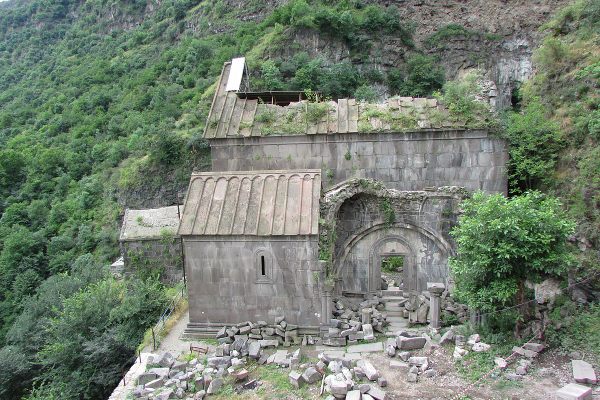About
Built sometime between 1550 and 1292 B.C. as a capital city for the Nabataeans, a Semitic people, Petra is perhaps one of the most astonishing wonders of the ancient world. It lay undiscovered to the modern Western world until 1812.
But postcard images of the Treasury, the Monastery, and the water channels in the Siq (approach canyon) can't convey the wonders to be experienced there in person. From the awe-inspiring arrival to the overpowering geology (endless towering, convoluted rocks) and enormous scale (hundreds of monumental-geological tombs, going on for miles), Petra is an incredible site.
The approach takes almost an hour on foot, or you can go by horse or carriage. Before one enters the Siq (which translates to "shaft," and is the narrow gorge entrance to the city of Petra), a few scattered rock tombs give a preview of what's to come. Huge cubical forms cut out of vivid sandstone, cliff faces sculpted smooth and vertical, with spare bas-relief motifs of five ascending steps and Greek-column forms, and abyssal black tomb-openings.
The Siq itself is a canyon as narrow, high, extravagant, and anxiety-inducing as the slot canyons of the American Southwest. You enter from the top and walk down a gentle slope. On each side of the narrow, flood-sculpted passageway is a waist-high ancient water channel carved along the cliff curves. One channel was used for agriculture, the other to offer water to people and animals. It is conspicuously brilliant hydrology.
As you walk, you begin to see Petra's architectural elements—carved niches almost worn away, bench forms, a watering trough for animals, and, recently discovered, the feet and legs of a realistically sculpted man leading two camels down the Siq, just larger than life-size.
When you finally arrive at the Treasury framed at the end of the Siq, the scale seems all wrong. The Treasury is as beautifully shaped, well preserved, and sandy pink as expected, but it is not jewel-like at all. It towers up over you, and a day of awe-induced neck-craning begins. Inside, the large entrance is a vast, perfect cube of space inside the mountain. The ceiling is not arched but absolutely horizontal, 50 feet by 50 feet.
The Treasury is truly amazing, a revelation, but without the Siq leading down to it, it would be merely impressive. Once into Petra the city begins, first a lengthy necropolis of tombs in the widening canyon, then signs of the once-living metropolitan area of 30,000 people. The tombs vie with each other for massiveness, reaching far up the mountains on each side, crowding and overlapping — a teeming, almost overpopulated necropolis.
The natural rock landscape is so extensively carved, and so much of the carving has eroded to look natural, that your eyes can’t stop examining every rock surface near and far, parsing artificial from natural and delighting the more in both.
There are modern amenities in this ancient city, provided by resident Bedouin children and adults. Coffee, camel rides in the canyon, burro rides to the peaks, and books sold by a woman originally from New Zealand who married into the Petra Bedouin are all available. Past ever grander tombs, a Roman colonnade, a Byzantine church (discovered in 1992), and a huge free-standing temple, is lunch and a museum.
A few miles away and very much worth visiting is “Little Petra,” the fountainhead of the whole Nabatean complex—a hydrological masterpiece of water channels, stone stairways, huge echoing cisterns, and dwelling caves. A hymn of water and rock, ancient and modern, dead and living—ultimately, Petra is an indescribable place.
In conjunction with the Long Now Foundation. Modified from original video and text by Stewart Brand at the Long Now Blog.
Related Tags
Ancient Ruins & Legendary Landmarks of Jordan
Explore Mesmerizing Jordan: From Petra to Greco-Roman Ruins.
Book NowCommunity Contributors
Added By
Published
January 8, 2010
Sources
- http://blog.longnow.org/1999/02/10/visiting-petra/
- http://en.wikipedia.org/wiki/Petra
- http://www.amnh.org/exhibitions/petra/
- http://www.brown.edu/Departments/Joukowsky_Institute/Petra/excavations/history.html
- https://www.jordantourspetra.com/en/petra-jordan
- https://theworldtravelguy.com/petra-jordan-travel-guide-inside-the-ancient-city-map-tours-photos/
- https://historyfangirl.com/discovering-lost-city-petra/
- https://jordantours.net/petra-light-festival/
